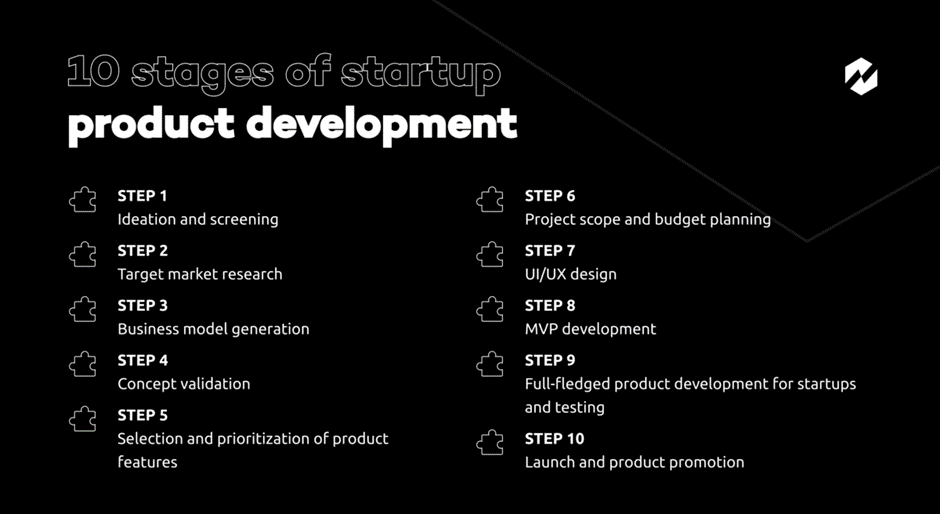Contents
Introduction
For startups, technology is essential as it allows for scalable operations and efficiency. It facilitates quick development, encouraging creativity and flexibility in constantly evolving segments. Technology also makes data-driven decision-making easier, which is crucial for strategic planning and getting an advantage in the startup scene. As technology is paramount, startups encounter several challenges. High infrastructure costs and the requirement for quick technological adaption are two issues that startups confront. The challenges of increasing operations, managing cybersecurity risks, and making data-driven choices highlight startup tech challenges that often arises
Startup Tech Challenges
Infrastructural Costs
Startups face significant obstacles when it comes to setting up their technology infrastructure, especially when it comes to controlling large infrastructure expenditures. This includes costs for necessary cloud services, software, and hardware. Building and maintaining a strong technological basis is essential for performance and scalability. But these costs frequently put a strain on startups’ limited resources, which is a big obstacle. Utilizing scalable cloud solutions, investigating affordable technologies, and improving resource utilization are necessary to effectively handle these startup tech challenges.
Rapid Technology Changes
Upholding employee knowledge by continual training to keep them up-to-date is a major obstacle. To stay competitive, startups need to have a workforce that can pick up the newest technologies rapidly. Finding an appropriate balance between stability, flexibility and adaptability remains crucial, even in the face of hiring hurdles. It is crucial for promoting innovation and assuring consistent growth in the face of ongoing technological shifts in order to overcome these regular startup tech challenges.
Ensuring Cybersecurity
Expansion of Starups makes them more vulnerable, necessitating swift response to emerging threats. The constant difficulty is creating a cybersecurity culture on a shoestring budget and in the face of a skills shortage. It becomes imperative to prioritize staff understanding, secure coding methods, and data protection. These new startup tech challenges require constant battles to keep ahead of sophisticated cyber-attacks and navigate compliance rules.
Here is our blog that unveils the strategies for small business in order to ensure cybersecurity
At #Sparity, we're committed to helping startups and small businesses thrive in this constantly evolving technological world. We're here with the top 10 essential #cybersecuritystrategies that small businesses must practice.https://t.co/Ha9GRMWXsz pic.twitter.com/FiEK76svGp
— Sparity (@sparity) November 15, 2023
Product Development
As a startup, creating a tech product has its share of difficulties. Innovation and scalability require a careful balance because of scarce resources, shifting markets, and intense competition. Hardware and software issues like compatibility problems and glitches may hamper development, while persistent challenges include finding qualified personnel and obtaining finance. Complicated tasks include navigating regulations and developing successful go-to-market plans. successfully addressing these startup tech challenges with flexibility, agility, and a deep understanding of market dynamics.

Picture Credits: Rewisoft
Choosing Right Technology
A startup must consider factors including cost, scalability, team skill level, and community support while selecting the correct technology. It is essential to prioritize integration capabilities, security, flexibility, and speed of development. Other important factors to take into account are minimizing vendor lock-in concerns, maintaining regulatory compliance, and keeping up with industry trends. In the end, the technology used should support quick development, fit in with the startup’s objectives, and grow with it. Continuous assessment is necessary to adjust to changing requirements and opportunities in order to deal with startup tech challenges
Building Digital Solutions
Developing practical solutions to common problems requires a combination of creativity and adaptability. Having a flexible attitude is essential when dealing with regular obstacles or managing startup tech challenges. Employing people who are aware of new technology implies that they can adjust to evolving requirements. This comprehensive notion captures the spirit of creative problem-solving, which is essential for adaptability in the face of changing conditions. Strong strategies that work in a variety of situations are built on the synergy between innovative ideas and practical solutions. For instance, startups like Square and PayPal addressed the problems of traditional payment methods by developing digital solutions.
Scalability
Problems with Scalability arise when resources are strained due to rapid expansion in startups. It is difficult to maintain efficiency while balancing rising demand. It’s crucial to manage data expansion, scale infrastructure, and ensure a seamless customer experience. Finding this balance is essential for long-term success, which makes scaling one of the major startup tech challenges. Early on, Twitter and Airbnb experienced issues with scalability as they tried to manage the rapidly increasing number of users on their platforms. This underscores the typical difficulties that startups confront when attempting to effectively scale their technological systems.
Digital Transformation
Startup tech challenges from digital transformation and migration. These involve hiring qualified personnel, managing tight budgets, integrating legacy systems, and preserving data security. Resolving scaling concerns, preserving an optimal user experience, and negotiating changing regulations are critical for success. As technology becomes more dynamic, startups need to prioritize agility, creativity, and good risk management in order to survive.
While the above challenges remains constant, In his interview to the Nasdaq Entrepreneurial Center, a co-founder of LeverX Group Dr.Victor Lozinski shared his view on startup business and organizational challenges and how it needs be addresses by saying making wrong decisions is better than taking no decisions at all
Data Driven Decision Making
Ignoring data-driven decision-making exhibits significant startup tech challenges. Product development, competitiveness, and strategic planning may all be hindered by a failure to use data effectively. Relying on instincts instead of data insights might result in ineffective resource allocation and lost opportunities in the fast-paced startup tech industry. Adopting data-driven tactics is essential for making well-informed decisions, streamlining processes, and obtaining an advantage over competitors in the quickly changing startup ecosystem.
Partnerships and Collaborations
Developing strategic alliances is often essential to successfully navigating startup tech challenges. Choosing the appropriate partners is essential when dealing with problems like insufficient funds, a lack of talent, and market saturation. Partner collaboration may unlock creative solutions, accelerate development, and provide access to priceless resources. In a world full of tech hurdles creating alliances reduces risks and promotes teamwork. This encourages reciprocal development and makes it easier to get over challenges that can seem difficult when addressed alone.
Conclusion
It is necessary to address these startup tech challenges. Sparity is the perfect partner as it provides a holistic answer to all of their technology difficulties. Sparity offers a strong platform for startups to succeed with our expertise in digital transformation, cloud services, cybersecurity, data management, and Power BI analytics. With an emphasis on product development and the synergy of these services, Sparity offers itself as a beneficial partner, enabling entrepreneurs to confidently and creatively traverse the complexities of the tech industry.




